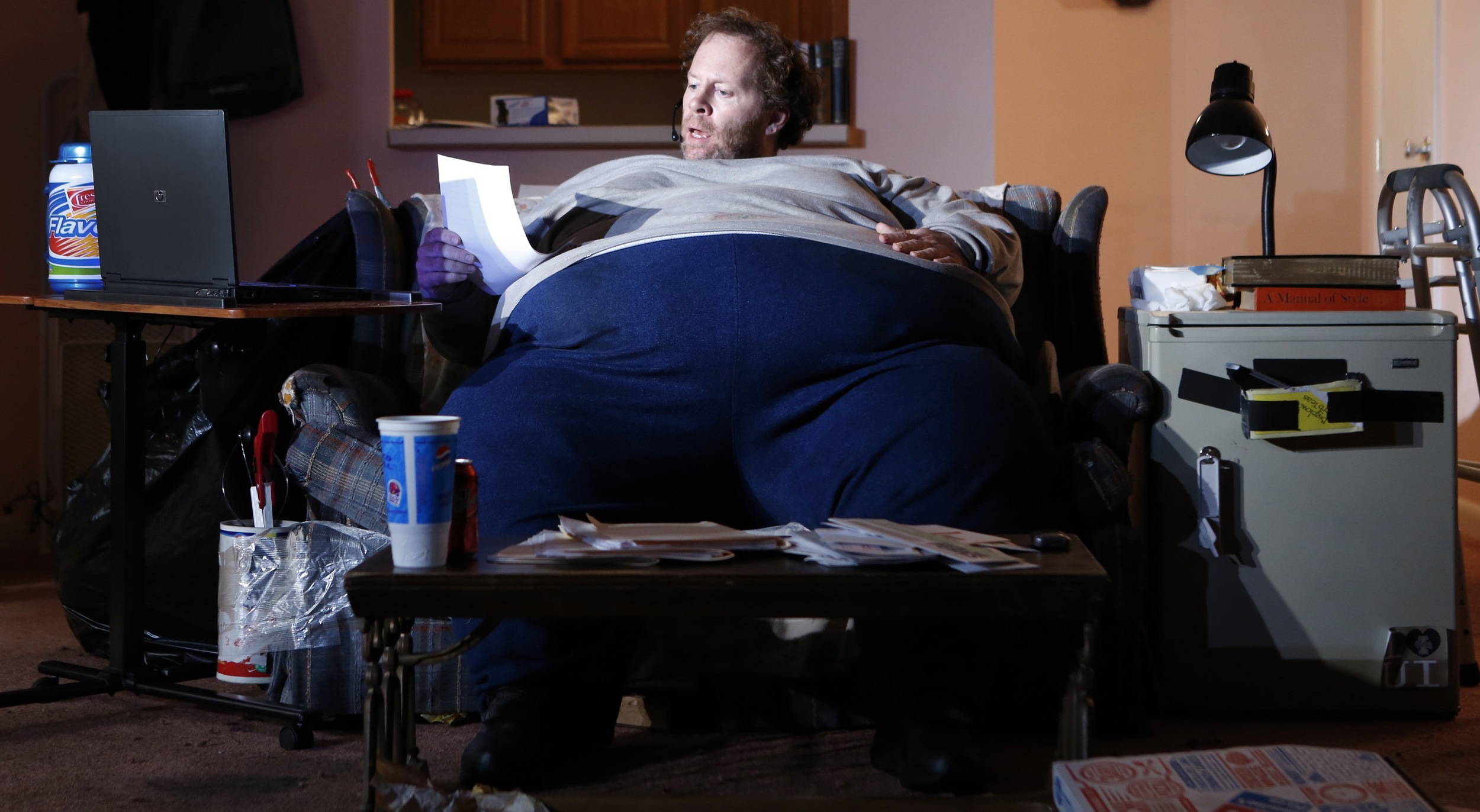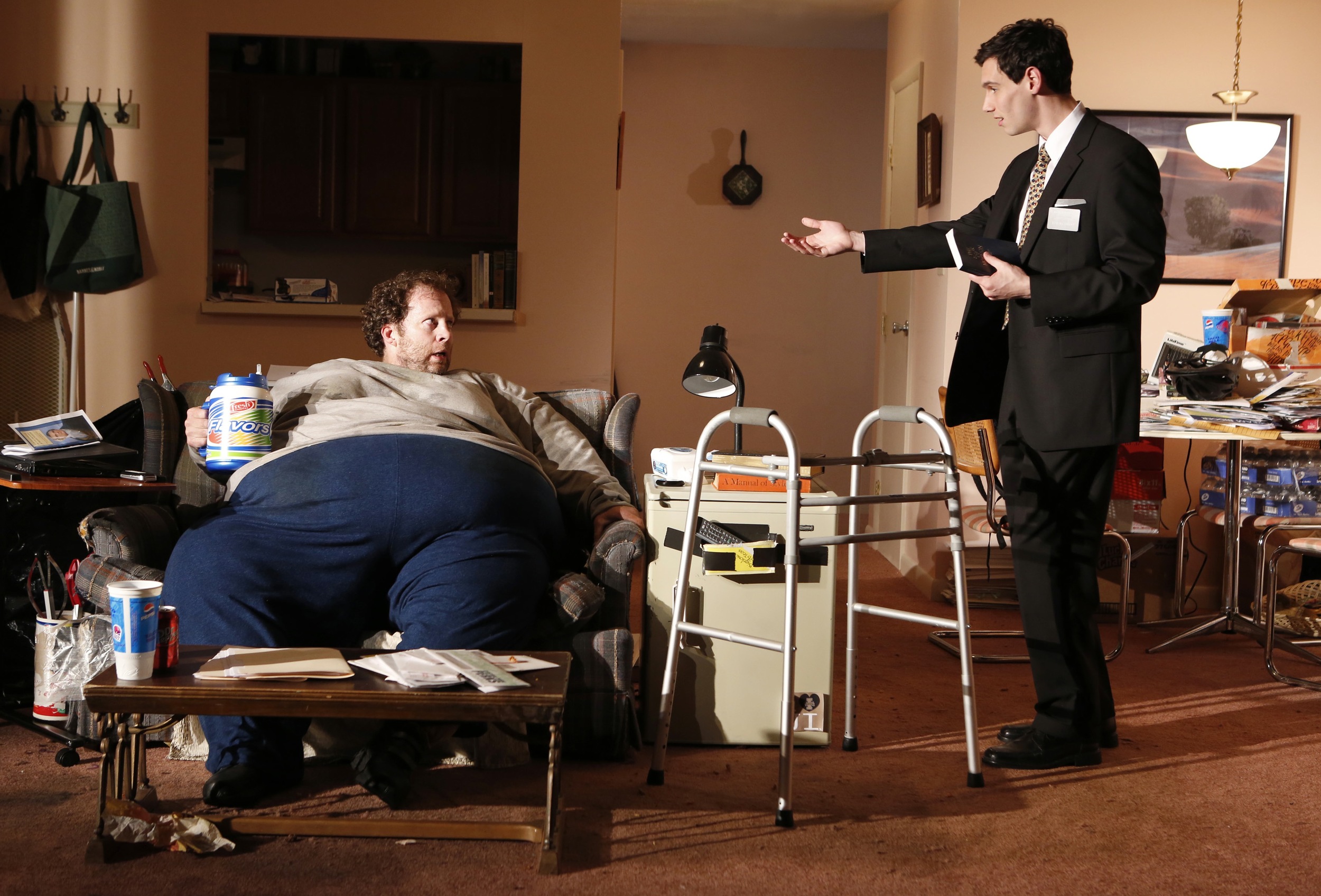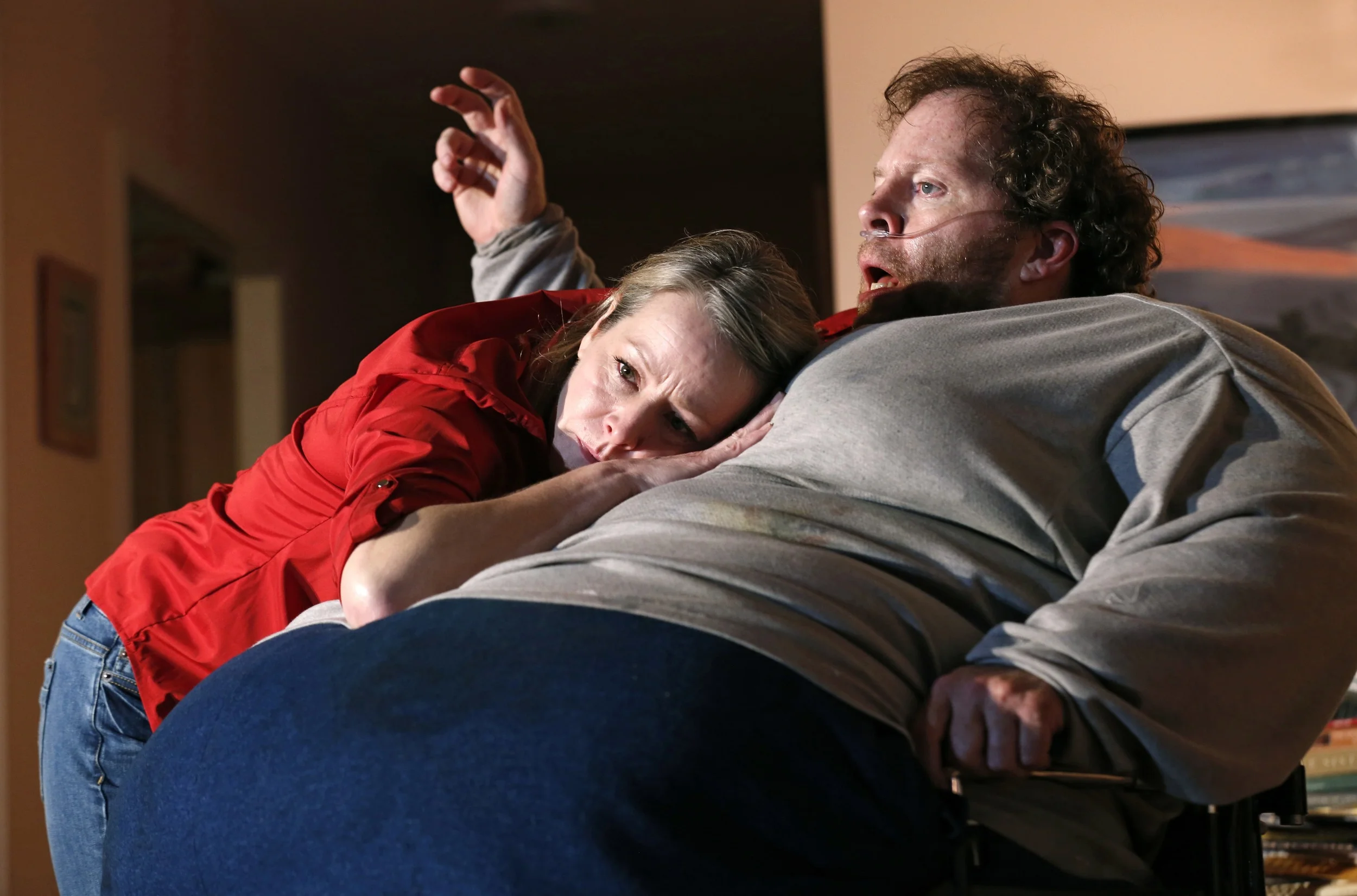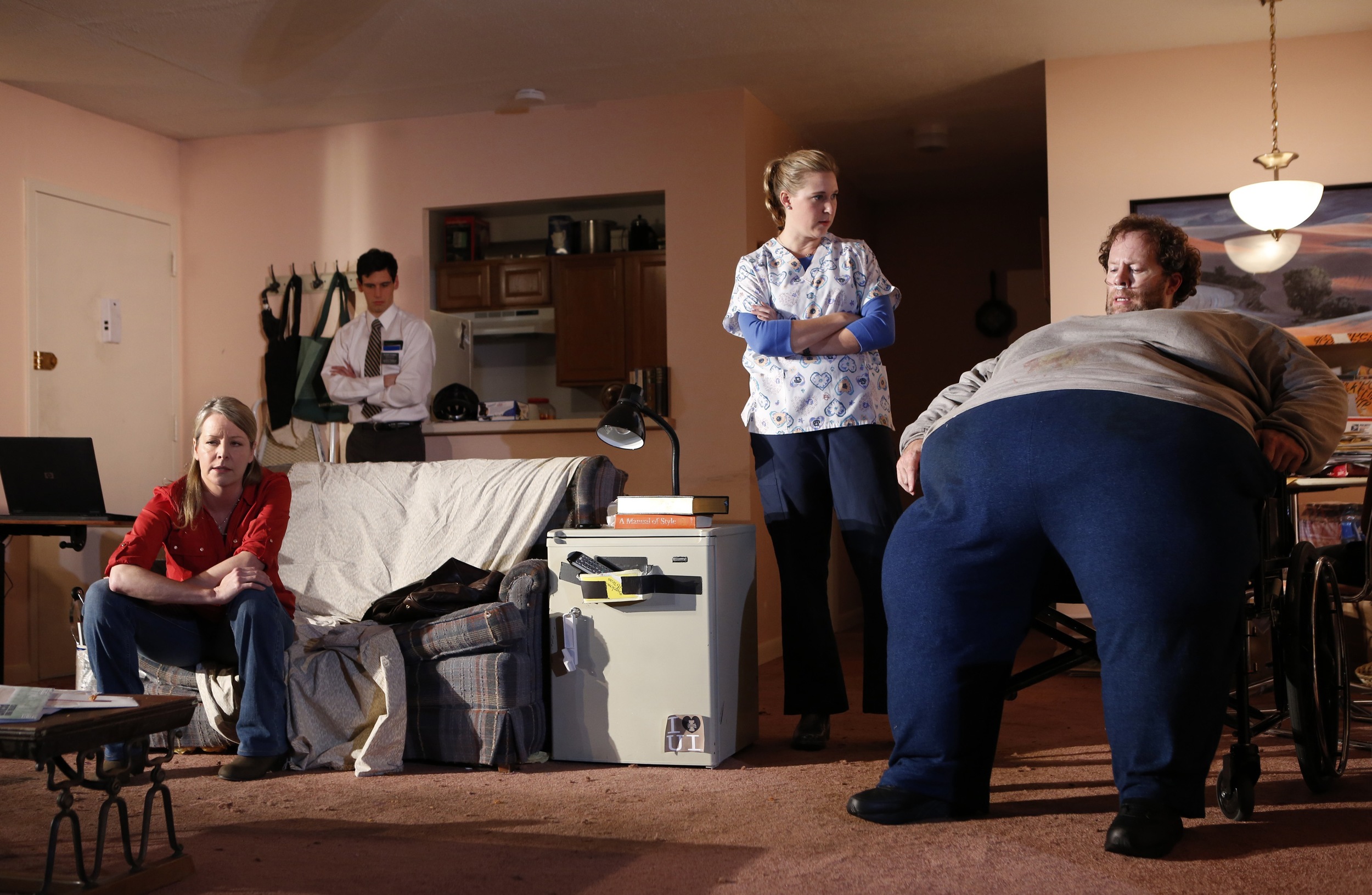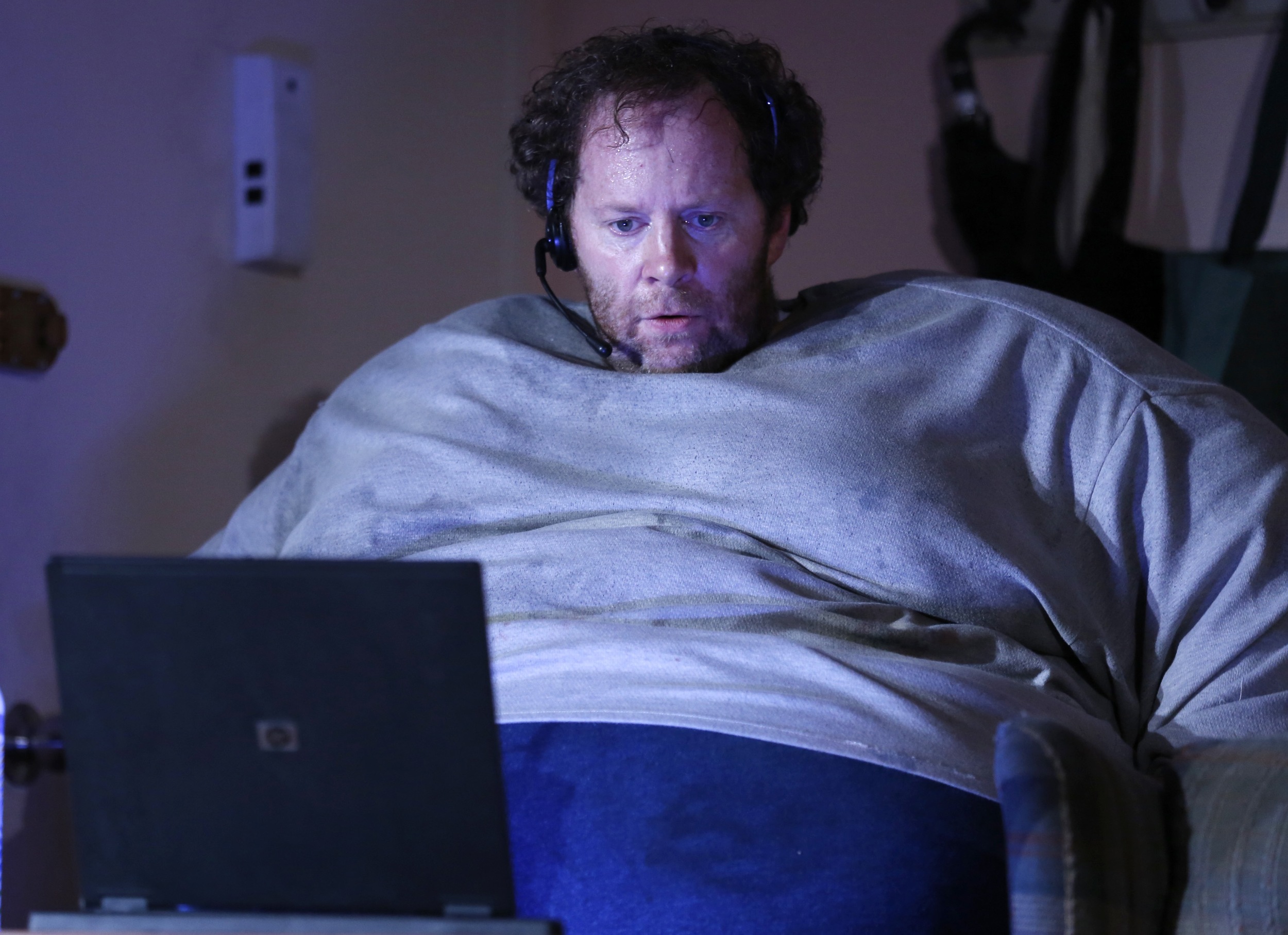Mike Daisey in The Agony And The Ecstasy of Steve Jobs, the show that last winter gave him quite the little headache. Courtesy Public Theater.
Earlier this year, when monologuist Mike Daisey got himself into hot water for lying on National Public Radio, I was conflicted. Actually, no—I was giddy with the kind of spiteful joy that comes from watching someone successful take a big step forward, look down, and find they are ankle deep in shit. Plagiarism scandals amuse me endlessly, and while Mike's screw-up wasn't plagiarism, I found it compelling for the same reason: we like to see cheats caught.
Daisey apologized, saying that he should not have brought Steve Jobs to This American Life—not because it contained falsehoods, but because it was a theatrical work unbound by the constraints of journalism. That struck me as a cop out, for the show's run at the Public theater was billed as non-fiction, and the audience came to be told something true. Embellishing details was a betrayal of that trust, and the fact that Mike revised the show to remove the offending bits tells me that he understood this.
I didn't feel conflicted until I heard that the Public was bringing him back for a run of six original shows, starting in October. Screw that guy, I thought. He cheated, he lost, game over. But then I interviewed him, and I was happily reminded that artists—everybody, really—are much more complicated than the news media can comprehend.
"At PS 122 I used to do a new show every Monday night," he told me last week. "I would give them these sort of evocative titles, but I wouldn't actually work on them until an hour before the audience was there. As they would come in, I would create the outline and perform the monologue. It was really pivotal into making me the artist I am now."
Daisey's extemporaneous style makes such speed possible, and the simplicity of his set-up, which requires nothing but a table, notes, and a glass of water, keeps it cheap.
"The work develops faster than it does in traditional American theater," he said, "in large part because we own the whole widget."
Even when off-the-cuff, Daisey's work seems scripted—polish given by a mind with an uncommon ability to quickly organize stories in a meaningful, often powerful way. Lots of people tell stories. Daisey is a storytelling machine.
It goes on like that. Mike Daisey screwed up badly, and to atone he is working as hard as he can at the thing he does best. Perhaps I was the last person to reach this conclusion, but the guy definitely deserves a second chance. I'm glad I wasn't too stubborn to give him one.



